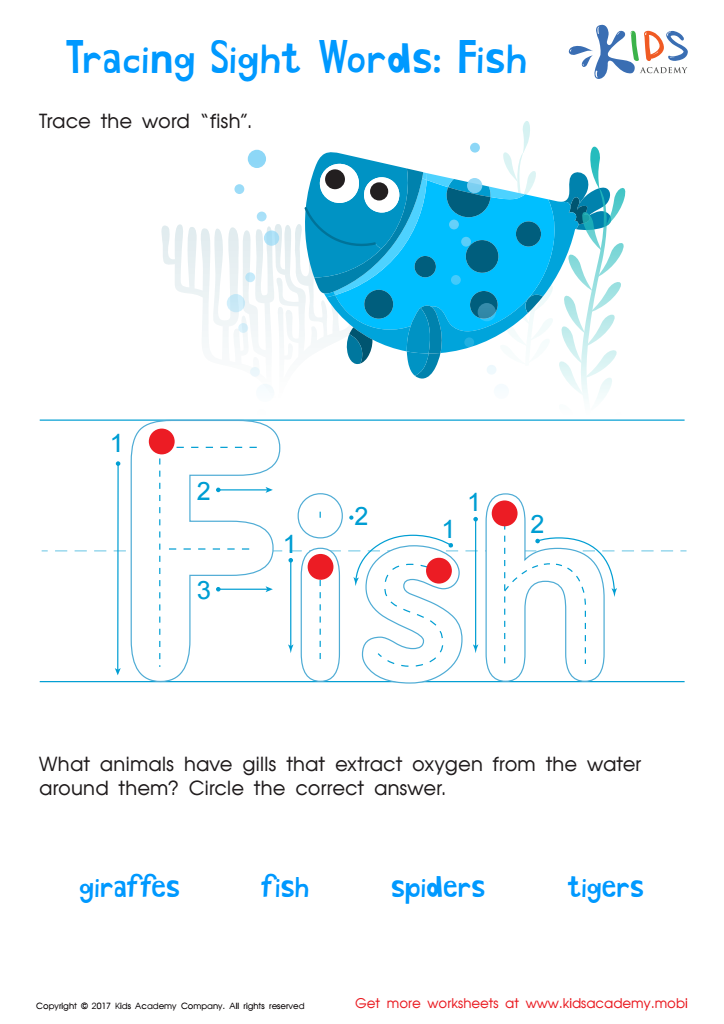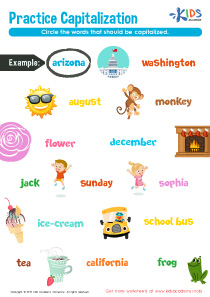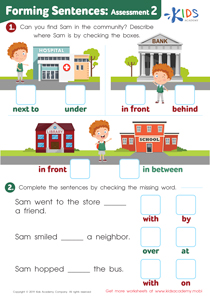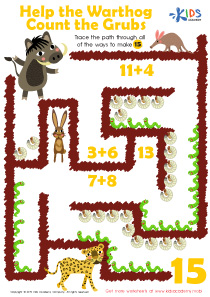Vocabulary enhancement Normal Kindergarten Tracing Words Worksheets
4 filtered results
-
From - To
Transform your child's vocabulary skills with our Kindergarten Tracing Words Worksheets focused on vocabulary enhancement! These specially crafted worksheets help young learners trace and write daily vocabulary words. By combining the tactile practice of tracing with visual learning, children strengthen their word recognition, spelling, and writing skills simultaneously. Ideal for Kindergarten classrooms, homeschooling, or supplementary practice, these engaging worksheets make learning fun and effective. Perfectly designed to match early literacy developmental stages, they support your child's journey to becoming a confident reader and writer. Sign up today and enrich your child's vocabulary one trace at a time!
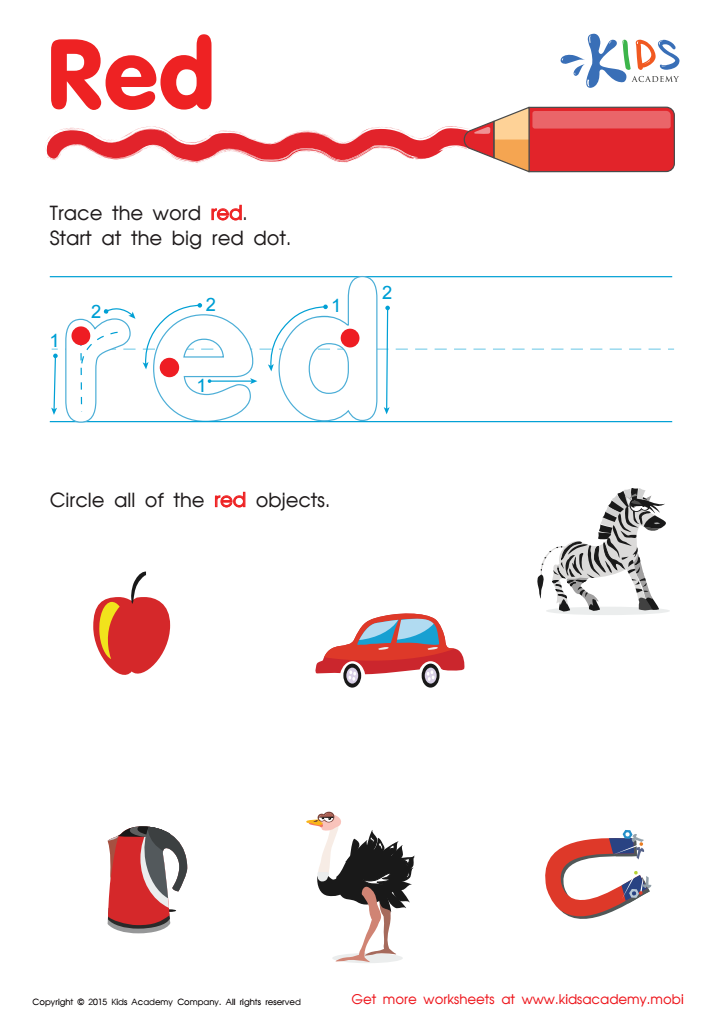

Red Tracing Color Words Printable
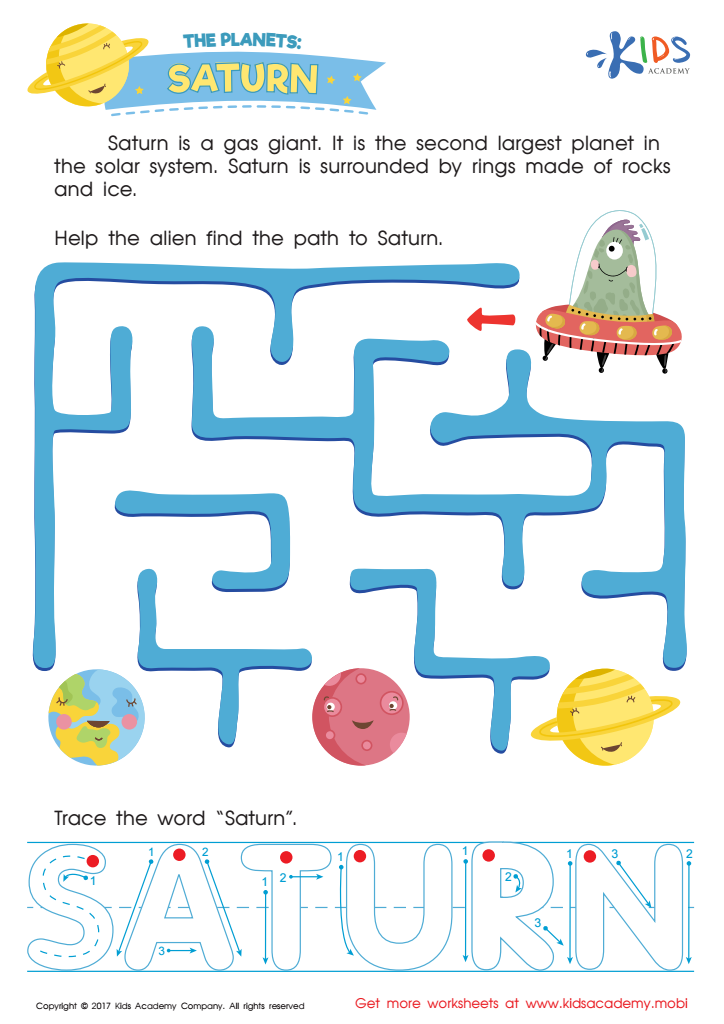

The Planets: Saturn Printable
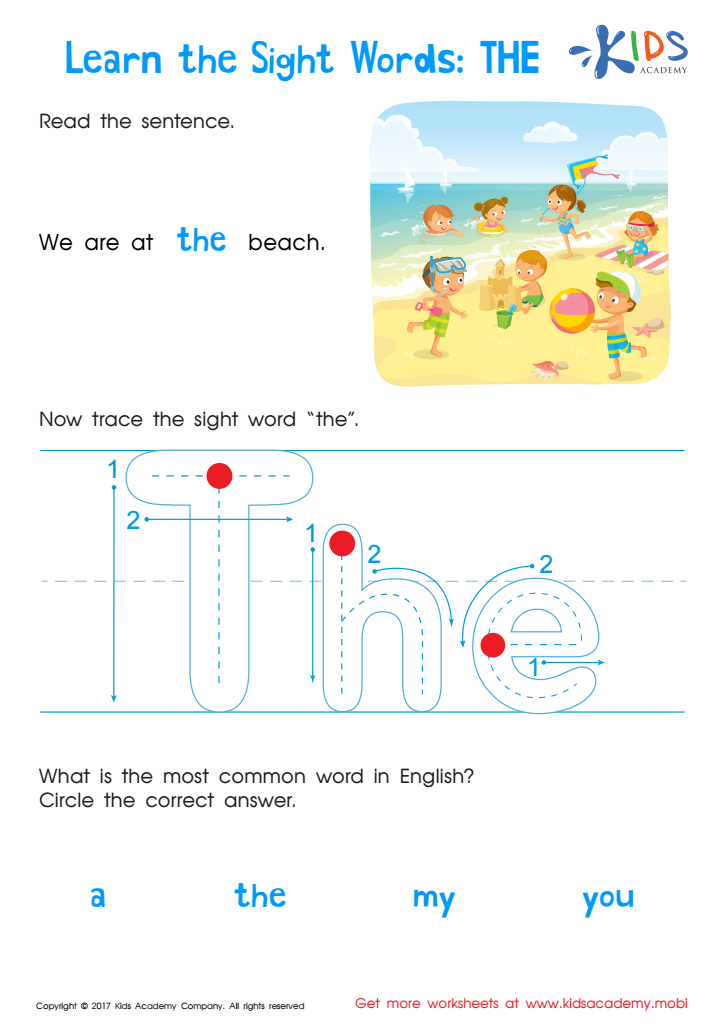

Sight Words: The Worksheet
Vocabulary enhancement is crucial in early childhood development, making tracing words a indispensable activity in kindergarten. Both parents and teachers should prioritize this because a robust vocabulary sets the foundation for effective communication, reading comprehension, and academic success. Engaging children in tracing words provides a hands-on, interactive method to achieve this, fostering both fine motor skills and cognitive development.
During these formative years, young children's brains are exceptionally receptive to new information. Exposure to an enriched vocabulary through tracing not only helps in word recognition but also boosts phonemic awareness. This dual action builds a bridge to fluent reading, crucial for all subsequent learning stages. Additionally, tracing words can be fun and inclusive activity that turns learning into a play, thereby maximizing engagement and retention.
For parents, supporting vocabulary enhancement at home aligns family involvement with educational goals, creating a consistent learning environment. Teachers can gauge a child's progress and customize learning strategies based on their word-tracing achievements. Everyday vocabulary experiences rooted in activities like tracing can empower children, building their confidence to explore language and articulate their thoughts effectively. Overall, such early interventions prove game changers in creating literate, innovative thinkers equipped for future academic endeavors.
 Assign to My Students
Assign to My Students
